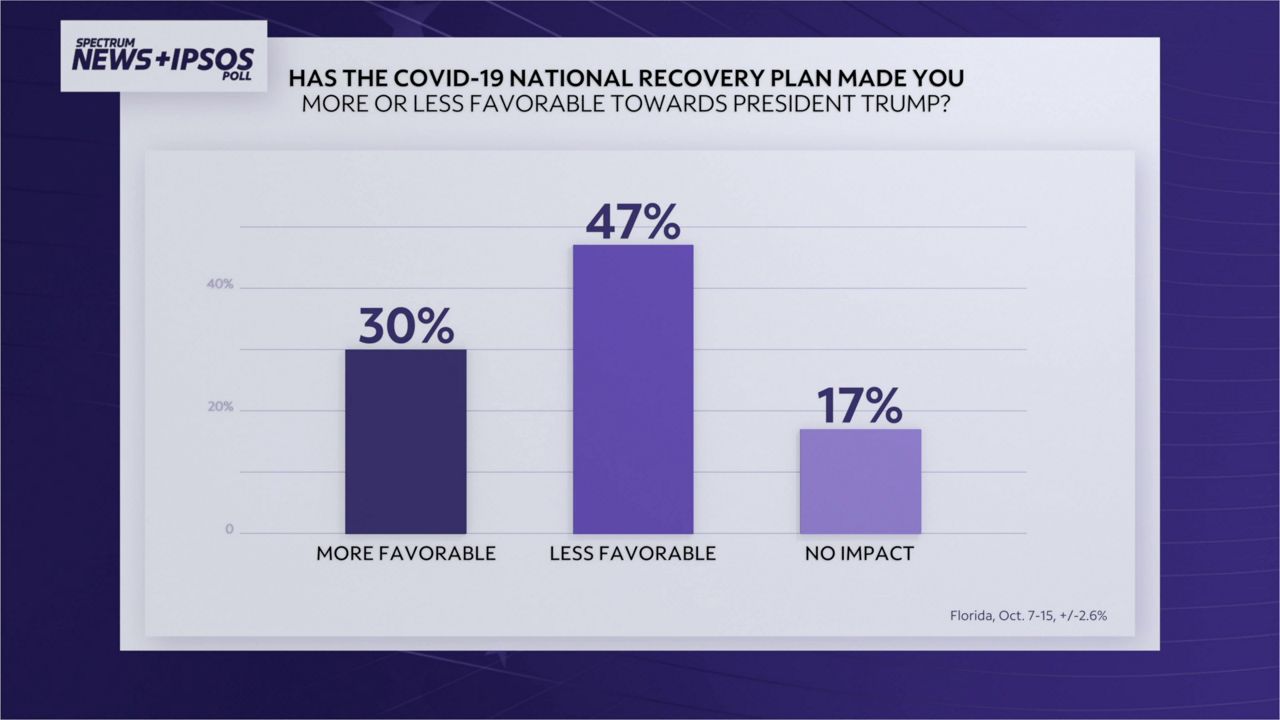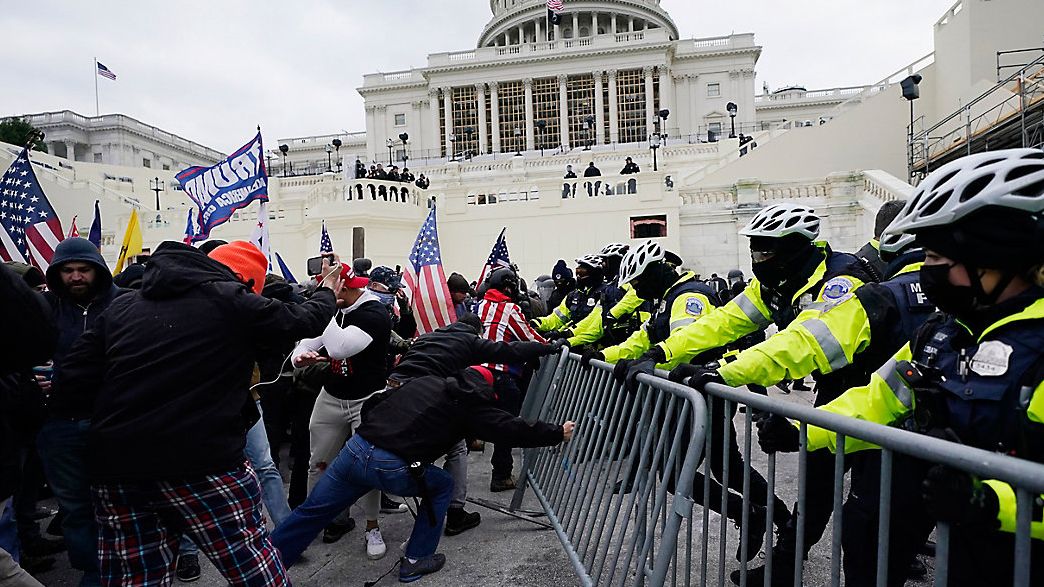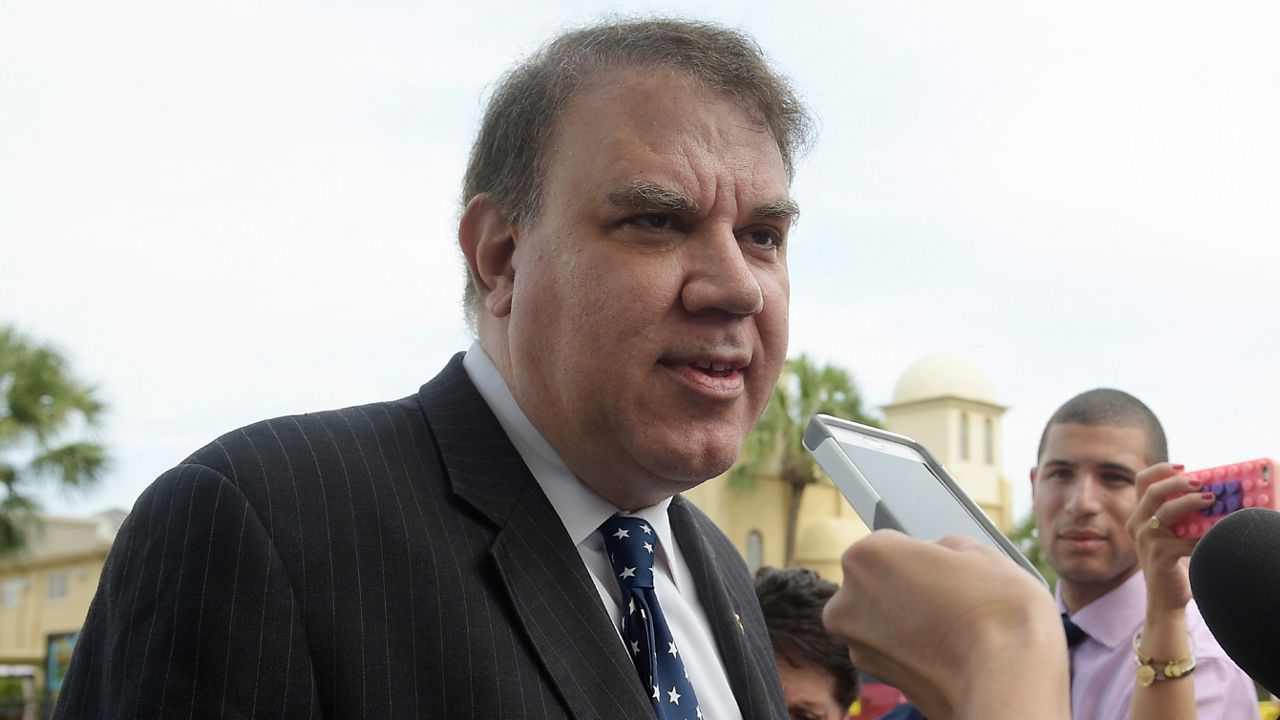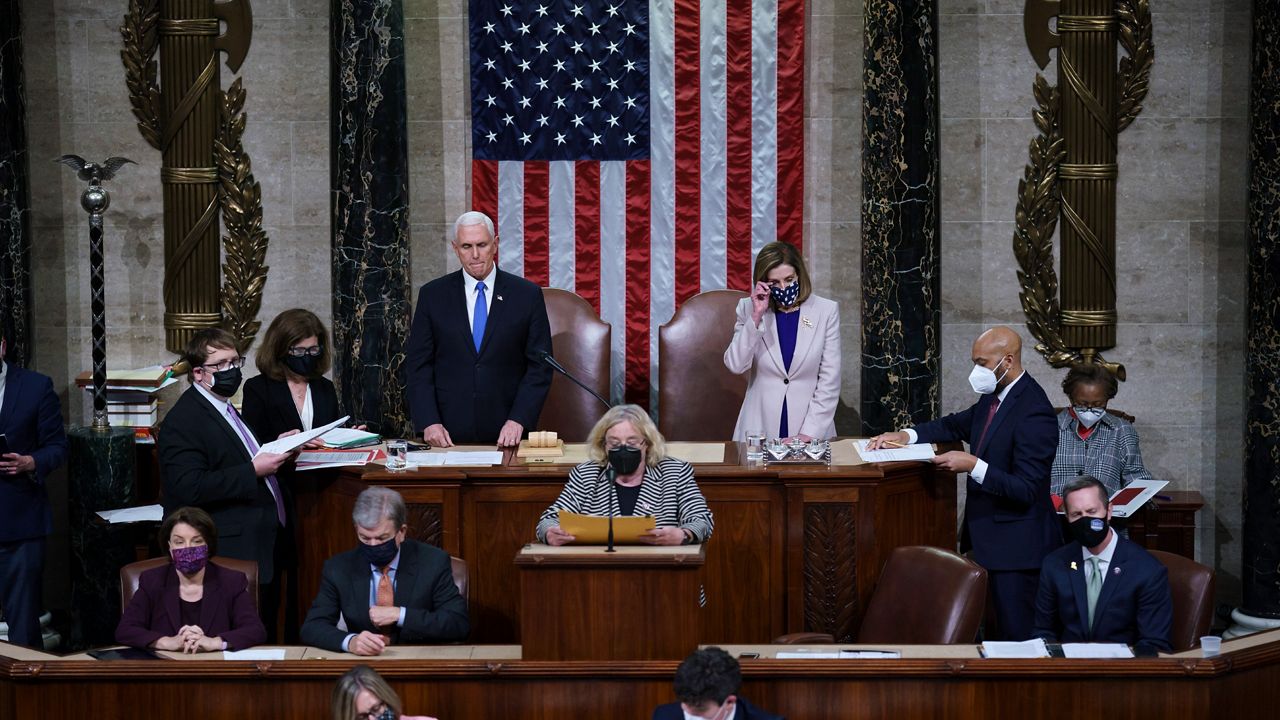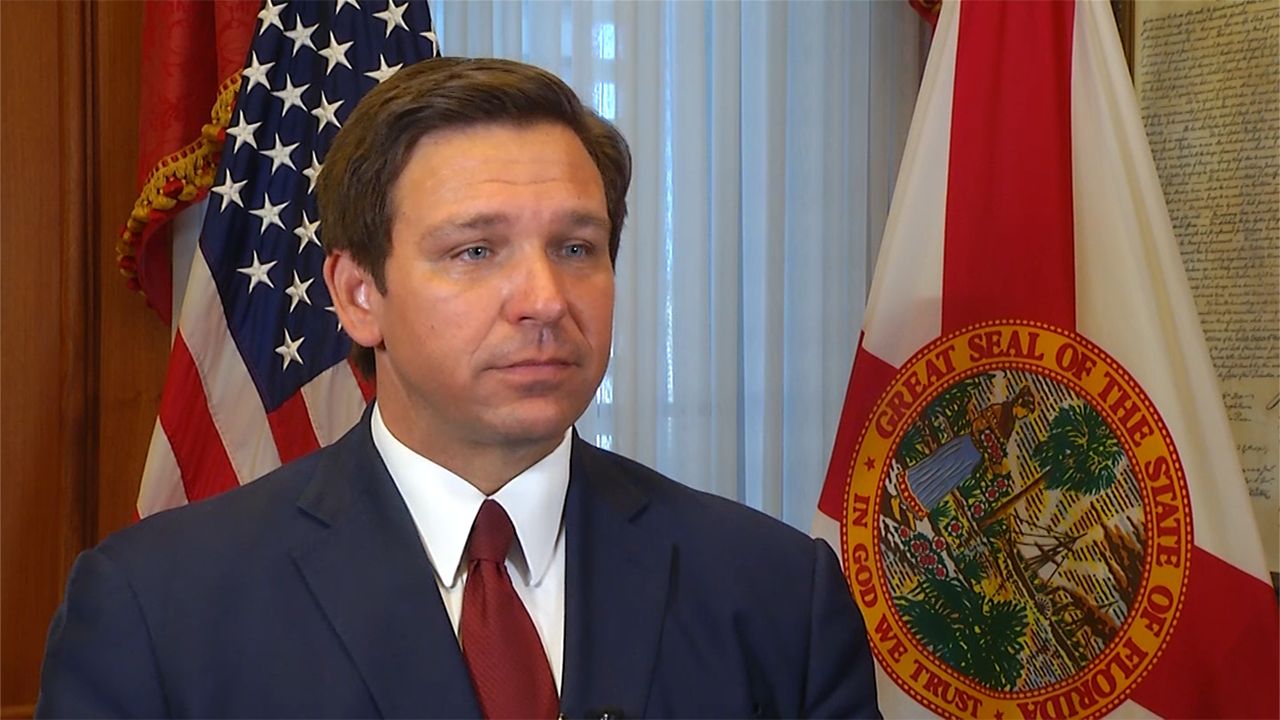More Floridians hold a less-favorable than a more-favorable view of President Donald Trump on the coronavirus national recovery plan, his comments about coronavirus safety measures, and on his contracting of COVID-19, an exclusive Spectrum News/Ipsos poll shows.
What You Need To Know
- New exclusive Spectrum News/Ipsos poll surveyed 1,800 Florida residents
- Questions included favorability of Trump on coronavirus, economy, and more
- Poll reveals sharp party divides, potential electoral influence of independents
- SCROLL TO BOTTOM: ▼ Full Spectrum News/Ipsos poll findings and methodology ▼
The poll also finds that more Floridians hold a less-favorable than a more-favorable view on recent news reports about Trump’s tax returns, on his handling of jobs and the economy, on his nomination of Amy Coney Barrett to the U.S. Supreme Court, and on the president’s performance in the first debate against Democratic challenger Joe Biden.
The findings underscore the sentiment of Floridians less than two weeks before the November 3 presidential election, in which analysts see Florida as certain to again play a pivotal role. The Sunshine State has selected the past six presidents, including Trump in a close 2016 race against Hillary Clinton.
Among the favorability topics, two stand out: Trump’s public comments on two coronavirus safety measures, and the recent reporting on his tax returns.
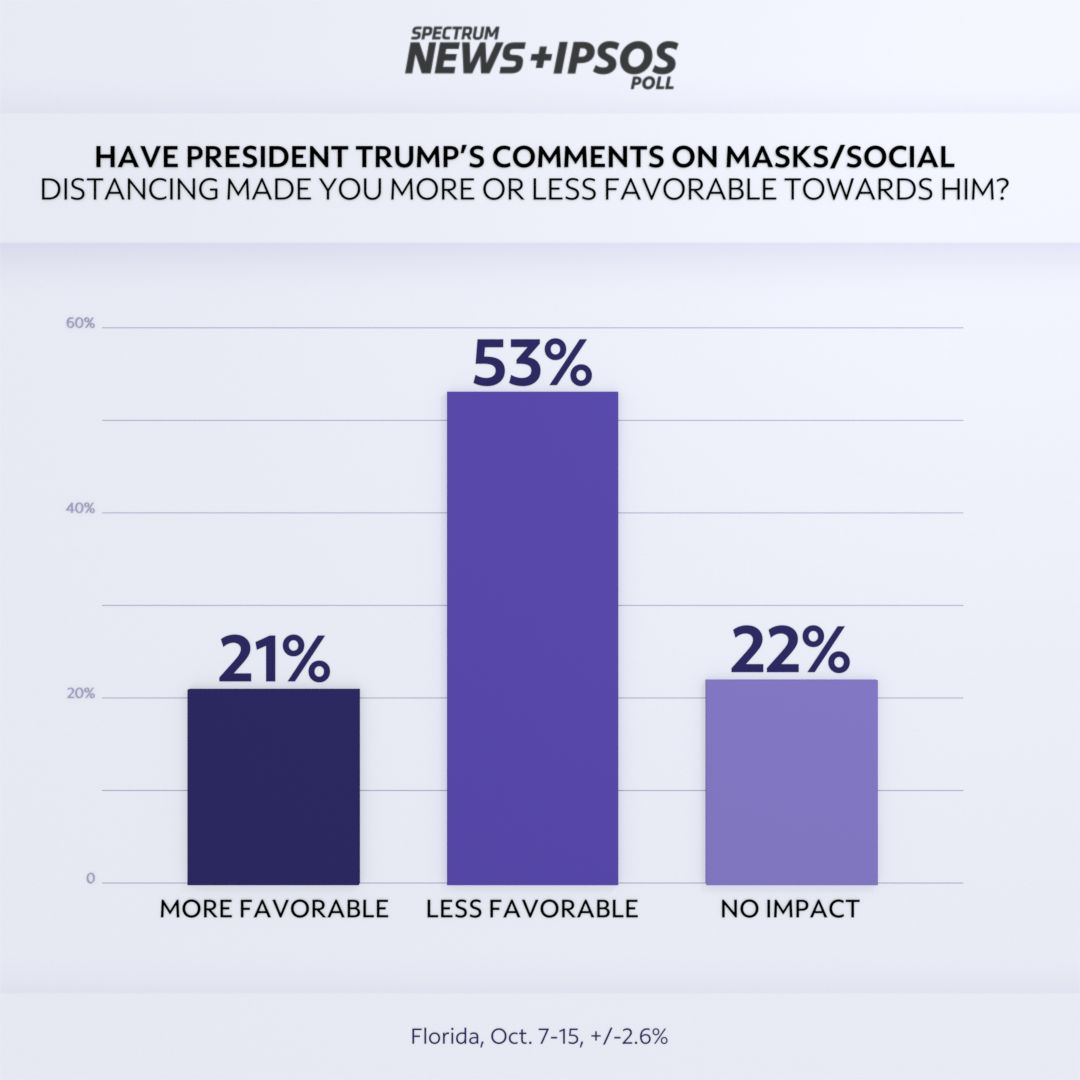
Fifty-three percent of respondents said Trump’s public comments on mask wearing and social distancing made him less favorable to them ahead of the November election. That compares with 21% of respondents who said the president’s comments on those topics made him more favorable to them. Regarding recent news reports on Trump’s tax returns, 47% of respondents said the news made him less favorable to them, while 18% said that news made him more favorable to them.
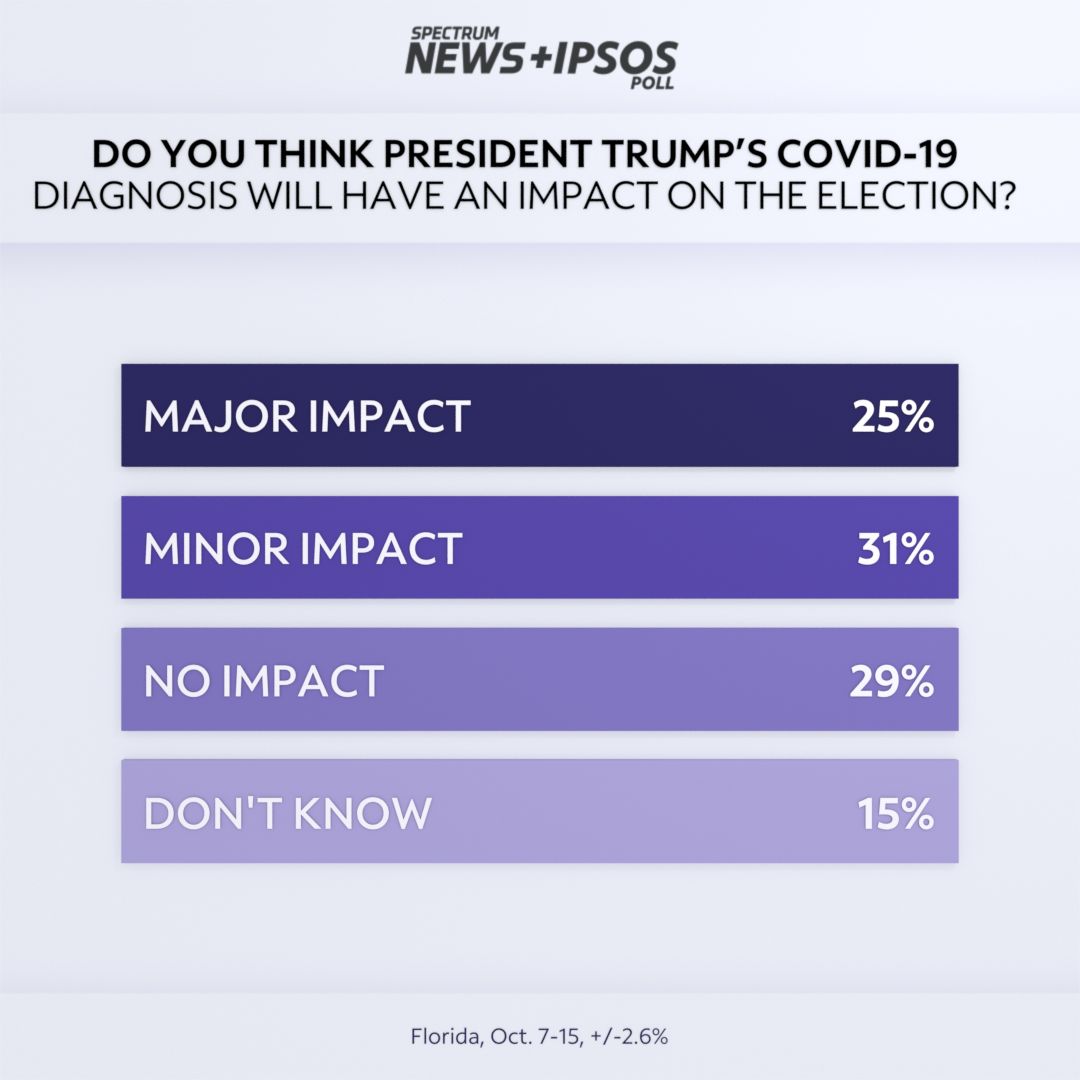
In another coronavirus question, 56% of respondents said the president’s announcement that he had tested positive for COVID-19 would have some impact on the presidential election. Twenty-five percent said it would have a major impact, 31% a minor impact, and 29% no impact at all. Eighteen percent of Republicans and 33% of Democrats said it would have a major impact.
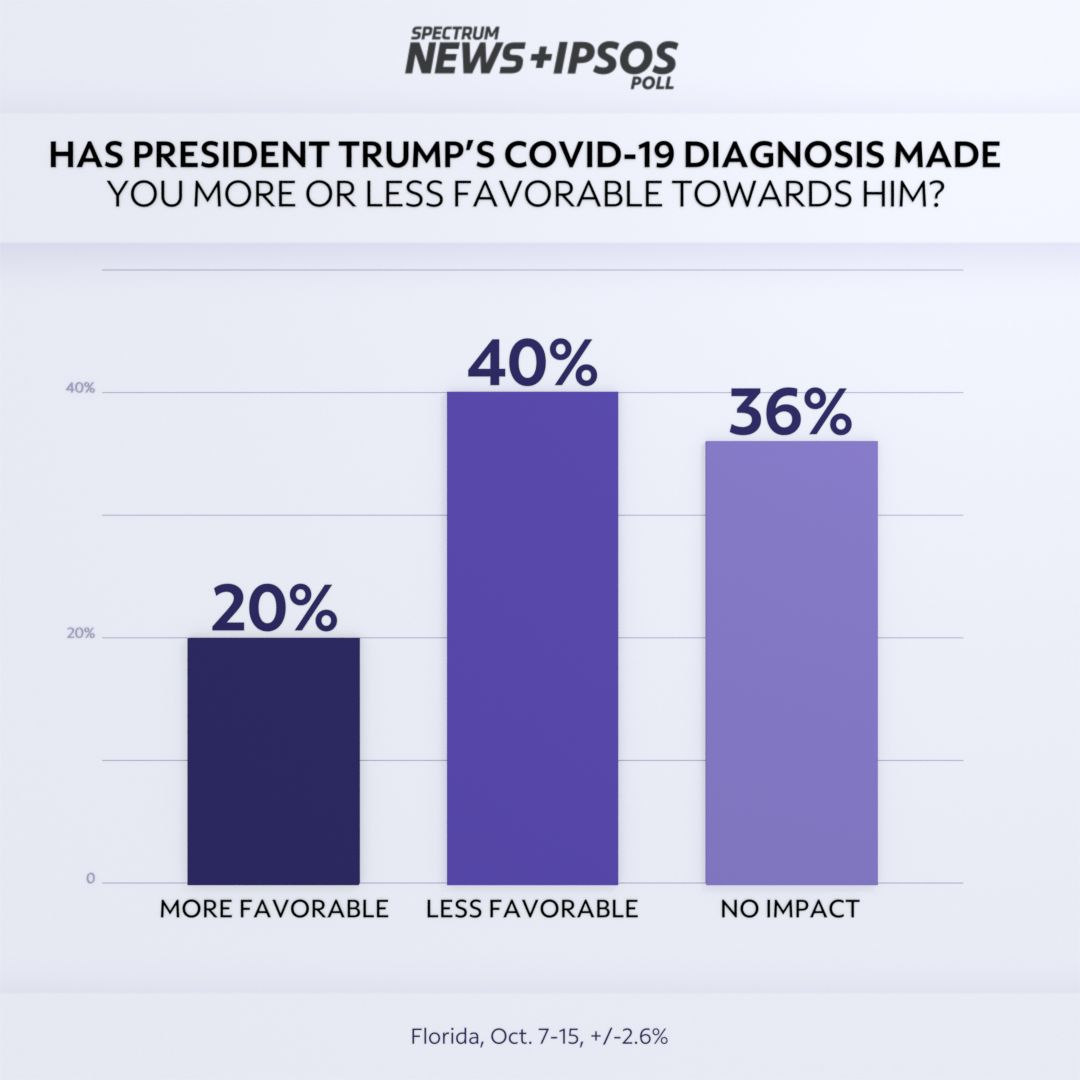
Many opinion polls cite the pandemic as a major issue among voters, especially Democrats.
Not surprisingly, the new Spectrum News/Ipsos poll revealed sharp divides by party line: In all questions about Trump’s favorability, far more Democrats than Republicans said the topic made the president less favorable to them. That especially was the case in the question about Trump’s comments on mask wearing and social distancing, in which 81% of Democrats and 20% of Republicans said the comments made him less favorable to them.

In all such questions, sentiment of political independents fell between that of Republicans and Democrats — suggesting the potential influence of that group in a close election.
Crucial battleground state
Florida stands as by far the biggest battleground state, which polls show having tightened into another close race. That explains why both candidates have spent so much time here in recent days and why that likely will continue until Election Day.
Ipsos, which specializes in global market research and public opinion, conducted the new poll October 7-15 on behalf of Spectrum Networks. The company surveyed 1,800 adults age 18 and older online in English.
The poll includes a credibility interval of plus or minus 2.6 percentage points for all respondents, and plus or minus 4.5 percentage points for an oversample of respondents in the Orlando and Tampa media markets.
"A picture" of Florida
Chris Jackson, senior vice president and head of the public polling team at Ipsos, said the Spectrum News/Ipsos poll essentially provides “a picture of the state of Florida, the people in the state of Florida, that helps us sort of understand where people are at any given moment in time. I do think it is important, though, that people should take every poll as a snapshot of a moment in time. These are not crystal balls. They’re not oracles. They don’t foretell the future.”
“Instead,” he added, “it’s a photo of where people are in the moment and how they answer the questions that we give them in the moment. ... It does give us a good sense of where Floridians stand on a whole host of issues.”
On Trump’s contracting of COVID-19, which he announced on Twitter in early October, 40% of respondents said that made him less favorable to them. Twenty percent said it made him more favorable to them, and 36% said it had no impact. By party, 12% of Republicans and 63% of Democrats said the news made him less favorable to them.
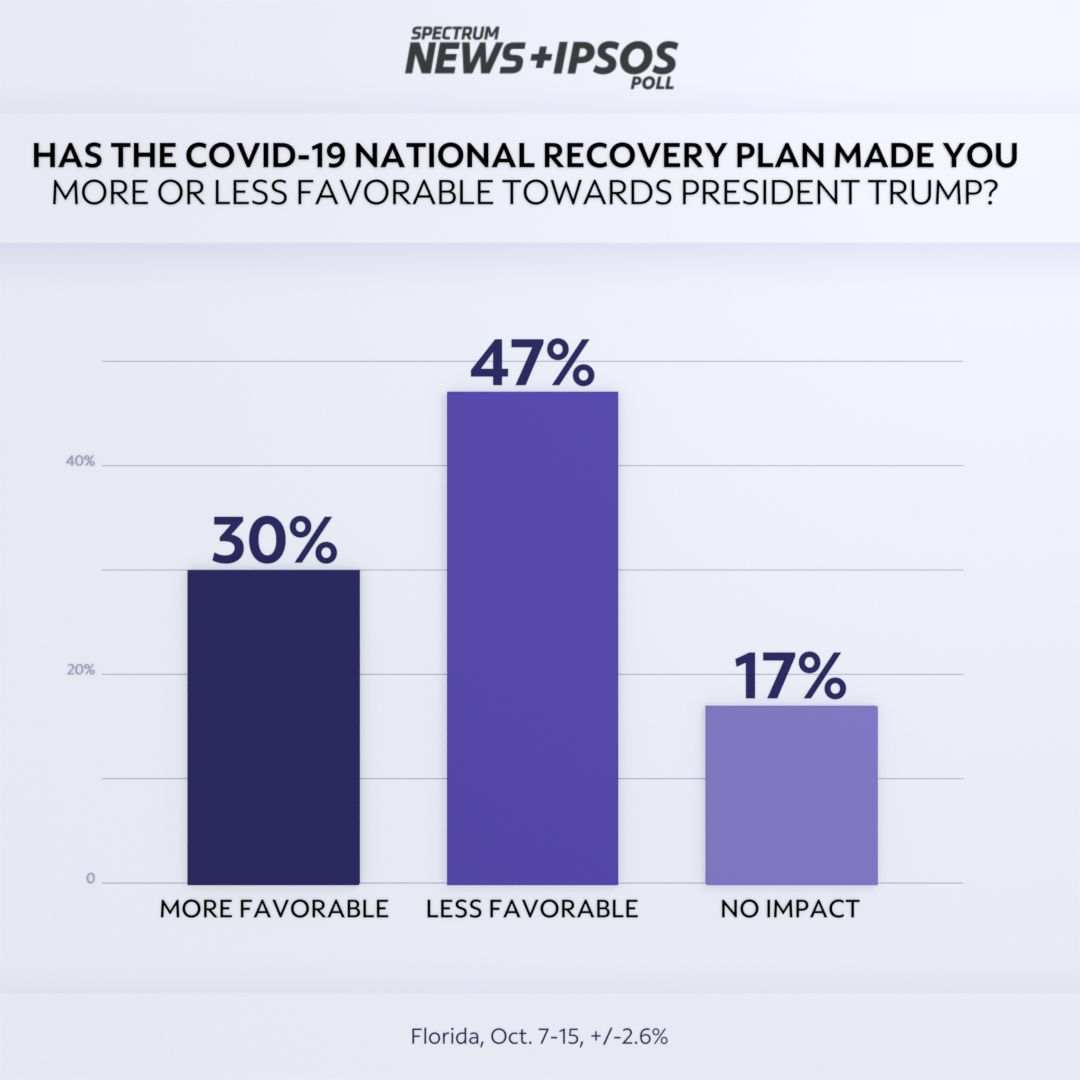
On the national recovery plan from the coronavirus, 47% said the president was less favorable to them. That was the case for 76% of Democrats, 14% of Republicans, and 45% of independents. The president approved in late March a coronavirus relief package that, among other things, gave households up to $1,200 per adult for individuals whose income was less than $99,000. Democrats, Republicans and the White House have remained at an impasse on a new relief package.
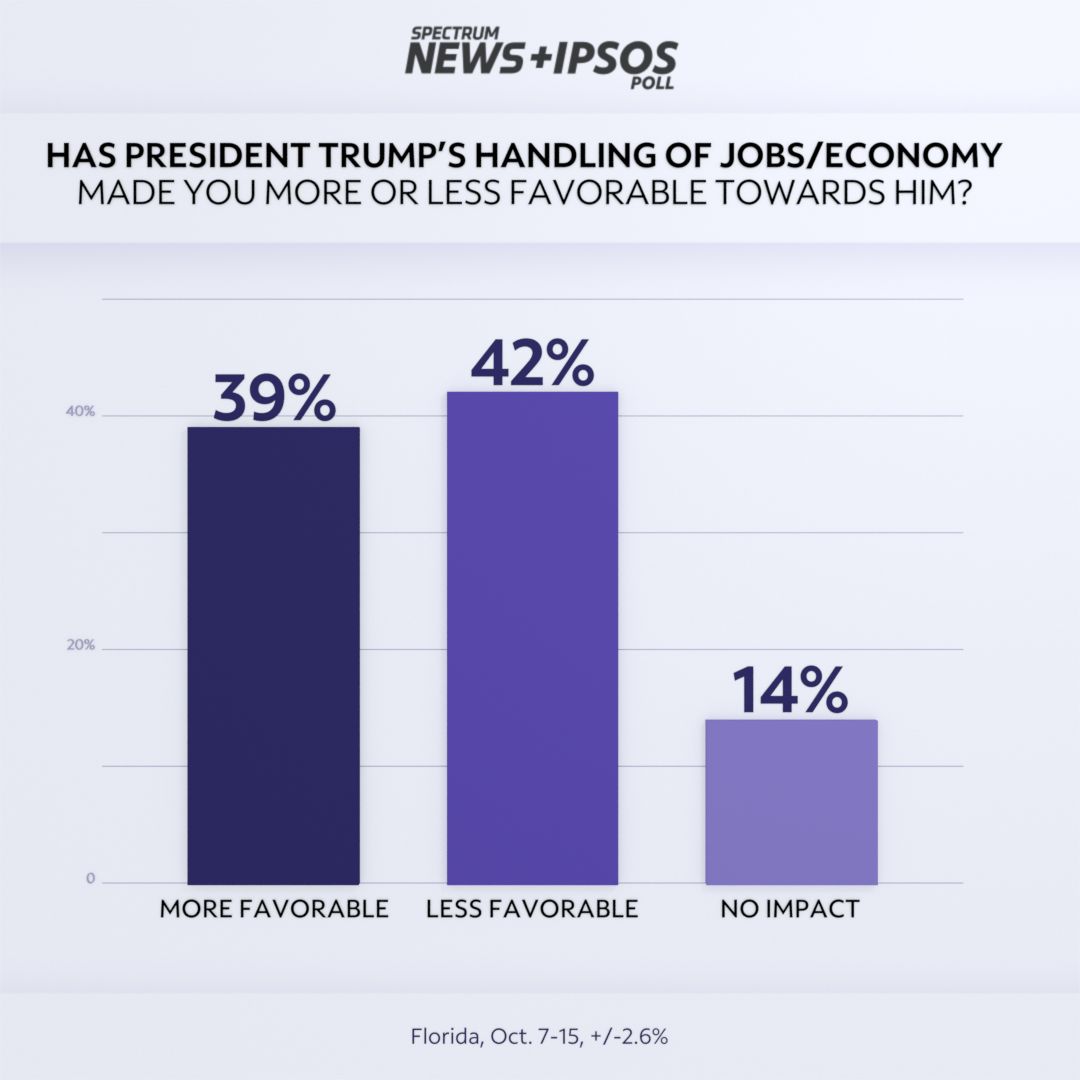
The gap was closer on the question about Trump’s handling of jobs and the economy. Forty-two percent said that issue made him less favorable to them, and 39% said it him more favorable to them. The Democrat-Republican divide again showed up strongly here, with 74% of Republicans and 14% of Democrats saying that the issue made Trump more favorable to them.
The recent news on Trump’s tax returns — in which the New York Times reported that Trump didn’t pay any taxes in 11 of 18 tax years that the newspaper reviewed — drew similar sentiment, with 16% of Republicans and 75% of Democrats saying the issue made the president less favorable to them.
Supreme Court vacancy
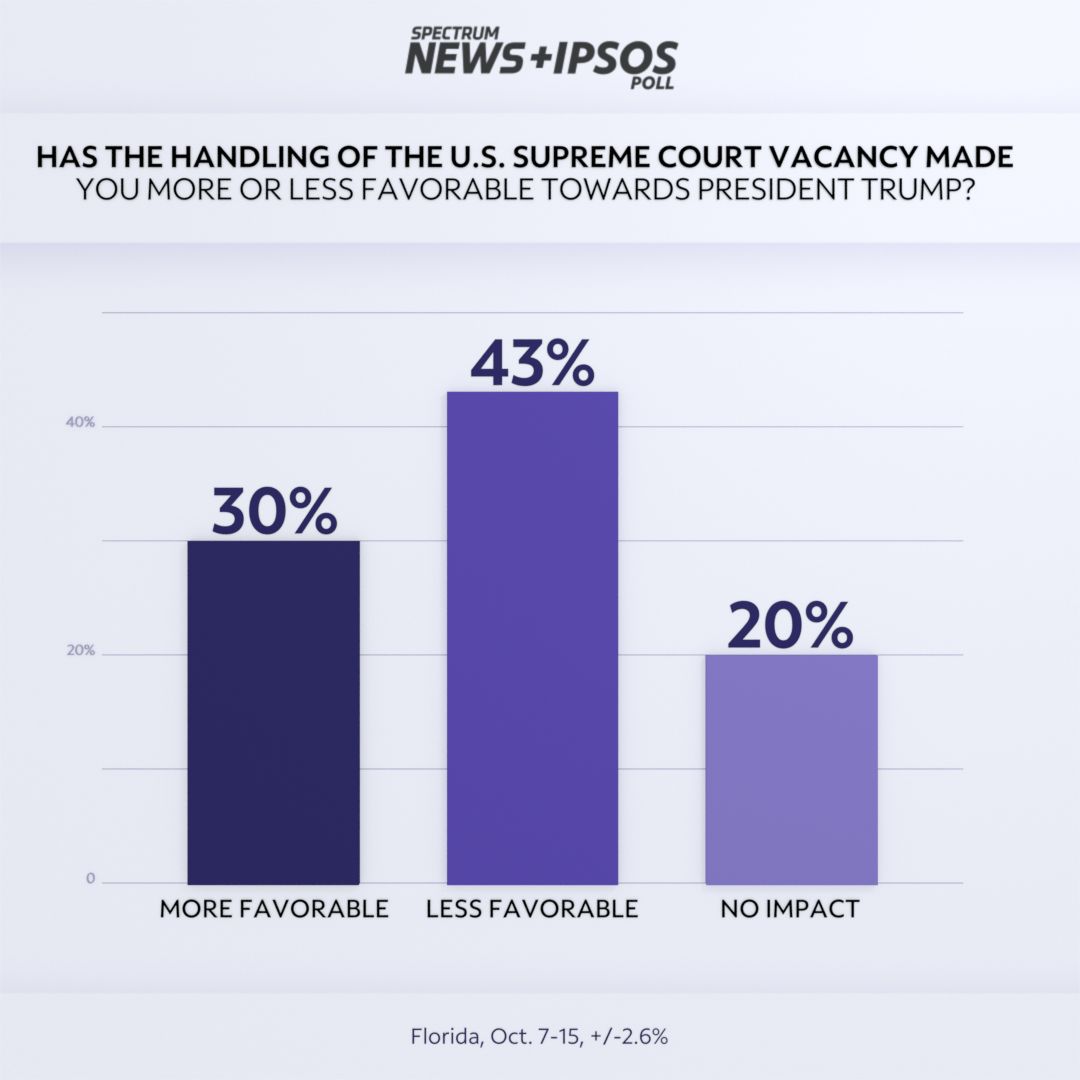
On the handling of the U.S. Supreme Court vacancy, created by the death last month of Justice Ruth Bader Ginsburg, 71% of Democrats and 12% of Republicans said that topic made Trump less favorable to them. Overall, 43% said the issue made the president them less favorable to them. Thirty percent said it made him more favorable to them.
Trump created a national stir when he moved quickly to fill the vacant seat with the nomination of Amy Coney Barrett, whose Senate confirmation presumably would swing the court strongly conservative. That infuriated Democrats, who pointed out that Republicans blocked Democratic President Barack Obama’s nomination to fill a Supreme Court vacancy, also during the final year of his four-year presidential term.
A question about Barrett’s nomination drew similar responses, with 37% saying it made Trump less favorable to them and 30% saying it made him more favorable to them.
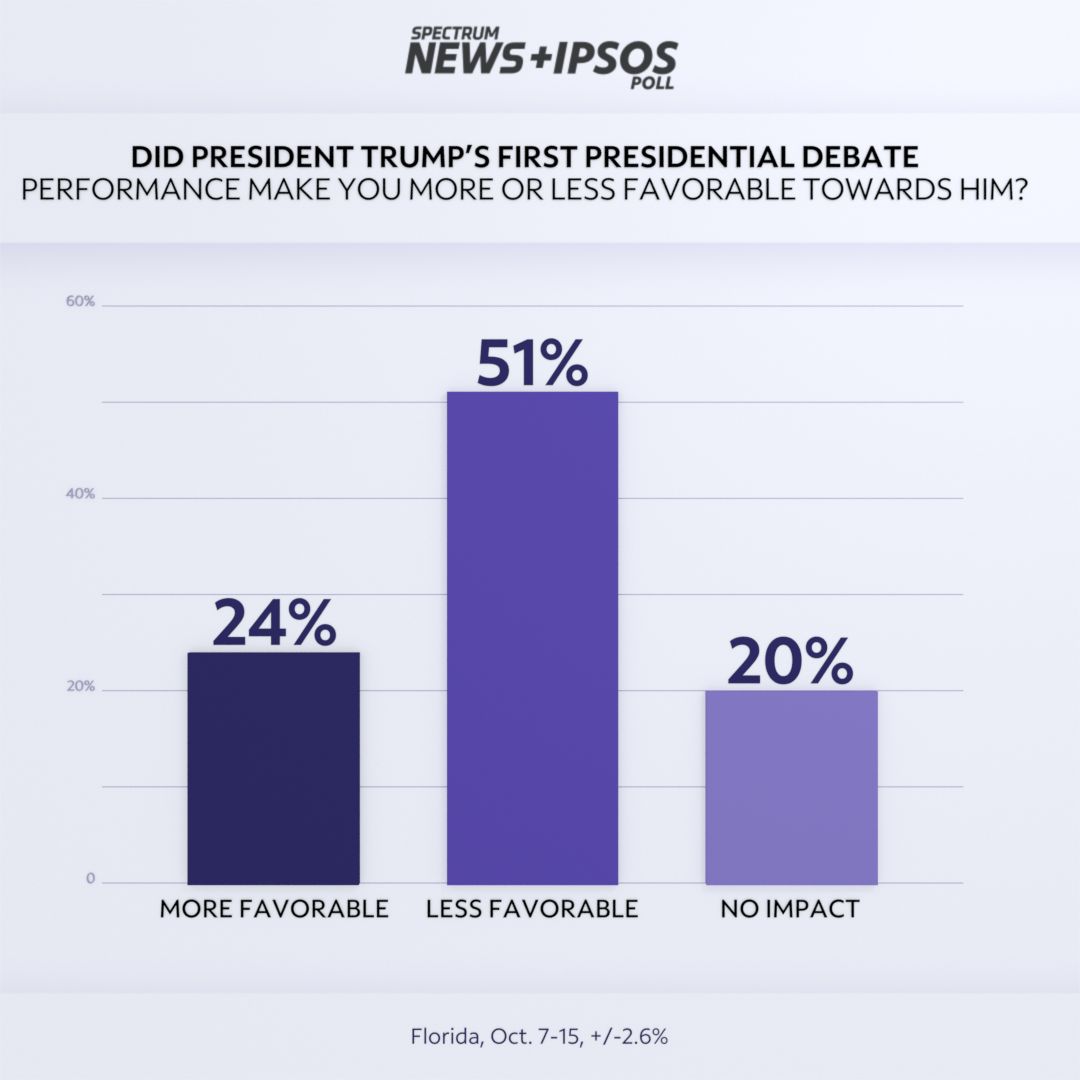
Independents expressed their strongest sentiment on the question about Trump’s performance in the first presidential debate — a chaotic September 28 event in which Trump continuously talked over Biden, who said to the president, “Will you shup up, man?”
Fifty-four percent of independents said Trump’s performance made him them less favorable to them, compared with 77% of Democrats and 20% of Republicans. Overall, 51% said the president’s performance made him less favorable to them. Twenty-four percent said his performance made him more favorable to them.
The "hidden Trump vote"
Jackson, the Ipsos senior VP, emphasized that, as a snapshot of public sentiment, the poll doesn’t aim to forecast how many votes Trump or Biden will receive in Florida.
“We’re not doing an election poll here,” he said.
Asked about the so-called hidden Trump vote that eluded polls and helped carry Trump to the presidency over Hillary Clinton in 2016, Jackson said, “What we saw is that people who made up their mind in the last week swung decisively for Trump.”
Jackson said that with the new Spectrum News/Ipsos poll, his company was “much more careful to match the design of the survey to the population of the state. We’re taking into account things that do tend to align with partisan behavior, so we’re making sure we have, for instance, lots of white men, blue-collar white men particular, which is a group that’s relatively hard to survey because they have relatively lower cooperation rates.”
Other recent opinion polls show Biden’s lead in Florida tightening, at least one case into a statistical tie — again highlighting the election focus on the Sunshine State.
“if you ever see somebody saying a 2-percentage-point lead is a lead, it’s not. That’s a tie,” Jackson said late last week, pointing to polling margins of error. “To be a considerable lead, it actually needs to be 5, 6 percentage points apart. I think in Florida right now, we’re seeing in the ‘average of polls,’ Biden is up 3 or 4 points. I think that’s a tie in Florida right now. I think Florida’s a tossup.”
Spectrum News reporters Dale Greenstein and Stephanie Coueignoux contributed to this report.
Read it: Exclusive Spectrum News/Ipsos Poll Findings and Methodology
Editor’s Note (10/23/20) – The net approve/disapprove values for the following subsets of Question 21 have been updated by Ipsos: Black Americans receive equal treatment to white Americans in this country, Racism is a significant problem in Florida and Lately, I do not feel safe in my community.




